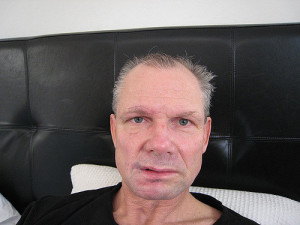 The temporomandibular joint, often called the TMJ, is the joint that connects your jawbone to your jaw. Some people have pain in the area that can be related to the joint itself. These types of issues can be caused by arthritis, jaw injuries, years of clenching and grinding, or unknown causes. Read on to find out if the discomfort you’re experiencing is related to your TMJ and what you can do about it.
The temporomandibular joint, often called the TMJ, is the joint that connects your jawbone to your jaw. Some people have pain in the area that can be related to the joint itself. These types of issues can be caused by arthritis, jaw injuries, years of clenching and grinding, or unknown causes. Read on to find out if the discomfort you’re experiencing is related to your TMJ and what you can do about it.
Symptoms of TMJ Trouble
The main symptom of a TMJ problem is pain and tenderness in one or both sides of the jaw. It might be worse when you press on the area or when you open and close your mouth, such as when you’re chewing or yawning. The pain might extend to your ear or the rest of your face. For example, you might have a dull ache in your cheeks or your chin. You might also hear a clicking sound on one or both sides when you open and close your mouth. Note that you can also hear clicking when you don’t have TMJ problems.
Self Help for TMJ Trouble
Many times, the pain will go away on its own if you just take care of the joint. For example, you can eat only soft foods which don’t require much chewing for a few days until the pain resolves. Then avoid chewing gum or eating very chewy foods for a while. You can also apply heat or ice to the area. You can use whichever feels better or even alternate the two. Your dentist can also show you how to massage the area to loosen up the muscles and help the joint feel better.
If these measures don’t work, you can take an anti-inflammatory medication like ibuprofen. If you have a nightguard from your dentist, you should use that at night to prevent the clenching and grinding that might be worsening the condition. If you don’t have a nightguard, make an appointment with your dentist to see if one would help.
When More Help Is Needed
Sometimes, self-help measures don’t work. Your doctor might prescribe you muscle relaxants or other types of medication to help ease the muscle tension and allow the joint to heal. You also might need physical therapy, which can get the joint moving more smoothly and reduce your pain. Steroid injections can also help. In rare instances, surgery might be needed. Your doctor can tell you more about these options.
Having a sore temporomandibular joint is uncomfortable, but most of the time simple measures can help. Don’t continue to suffer with TMJ pain. Talk to your dentist or doctor about the issue so you can get some relief.
Creative Commons image by Neeta Lind












